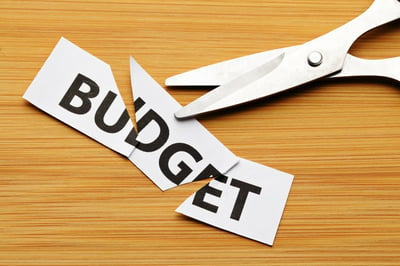3 Things that Inevitably Happen When You Don't Have A Budget
How to get back on track

Money trouble is cited as one of the top causes of stress for Americans. It is also noted as the top cause of arguing and tension among committed couples. Considering how money issues play into stress for the American public, you’d expect most people to keep a household budget, right? Surprisingly, a Gallup poll found that only about 1/3 of American adults keep a household budget, and only about 30% have a long-term financial plan that includes investments, retirement savings, and emergency funds.
While only 33% of the population is doing it, keeping a household budget is the most effective way to stamp out unnecessary spending and keep your finances in the black. Budgeting does more than just keep you aware of where your money is going. A good budget can properly allocate funds, stave off frivolous spending, and help you conceptualize long-term financial goals. You probably already know all of the benefits that come along with a budget, but do you really know what happens when you don’t keep a budget?
Money is Often Wasted
If you choose not to keep a household budget you are likely to waste more money than individuals who keep an active tally on what they spend, even if their budget is a loose one. Failing to set a monthly budget can seem like an easy way to escape the constant concerns about money. After all, if you aren’t stuck to a budget, you likely aren’t thinking much about your money, that is, until you run out.
By budgeting, you can buy more financial freedom. The first step to setting a household budget is analyzing how much you spend, and figuring out what habits are actually causing your financial problems. You might be surprised to find out that big purchases aren’t hitting you in the pocket nearly as badly as your seemingly innocent little splurges. Your daily lunch out or your regular stops at Starbucks might be the reason you can’t take a family vacation. A budget allows you to see where your money is going and encourages you to make smarter choices.
It Is Easy to Get Into Debt
According to The Simple Dollar, the average American household has $15k in outstanding credit card debt. Credit card debt is often accumulated when an individual does not have the liquid cash to pay for the things they want or need. Instead of waiting and saving, the purchase is placed on a credit card and paid off over time, however, for many the interest charges associated with many credit cards, and superfluous spending leads to ever-increasing debt, and for many, once you are in credit card debt, it gets increasingly harder to get out.
A budget will help you avoid the use of credit cards, and keep a better handle on when credit cards are used and for what purpose. By using cash for more purchases, you can also keep your credit utilization low, which could help raise your credit score.
An Unexpected Expense Can Derail Your Bank Account
What would happen if you had an unexpected medical bill to pay, or your car needed a new transmission? Where would you find money if your water heater suddenly stopped working? If you aren’t sure how you’d come up with the money to fix the problem, you likely are not budgeting, or at the very least, you aren’t including an emergency fund in your budget.
Without a budget, it is easy to spend every dime you make, leaving nothing left over for rainy days. When something inevitably happens that requires funds you don’t have, you end up with more stress than you bargained for.
Budgeting may seem difficult, or you might not know where to start, but once you get the hang of it you will find that setting a budget and sticking to it allows you more financial freedom than you ever dreamed of. It isn’t about denying yourself the things you want, but simply understanding where your money is going and making your money work for you.
